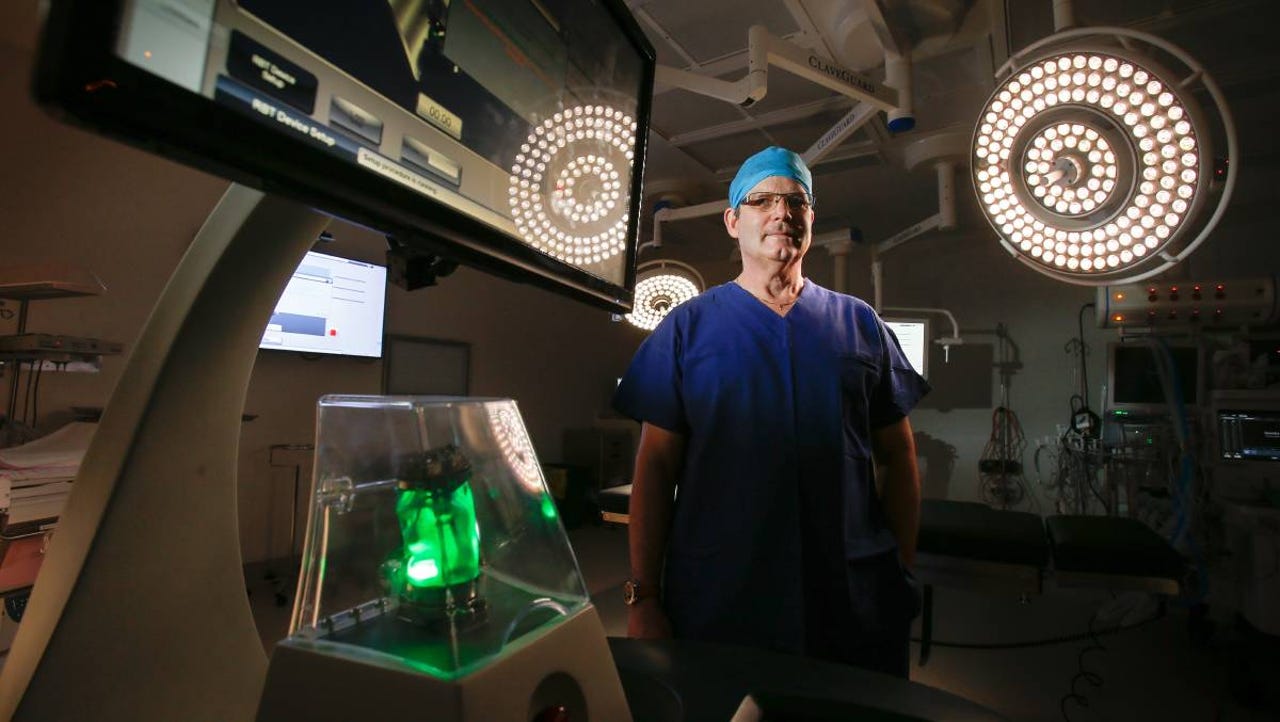Spine surgery faster and safer with a robot, according to study


A form of robotic-guided spine surgery results in a five-fold reduction in surgical complications and a seven-fold reduction in revision surgeries compared to freehand methods.
That's according to investigators presenting interim results of a multi-center prospective study that includes 379 spine surgery patients. Prospective studies track cohorts over time.
The results are welcome news for medical device companies specializing in robotics. A 2015 study tracking injuries and deaths related to robotic surgeries suggested that such instances were being underreported, despite widespread assumptions that robotic-guided surgeries mitigated many of the risks associated with freehand surgeries.
"A non-negligible number of technical difficulties and complications are still being experienced during procedures," according to the report.
The guided-surgery tech used in the spinal surgery study is called the Renaissance Guided System by Mazor Robotics. (The 15th century naming scheme probably has a lot to do with the phenomenal adoption of the da Vinci surgical robot, which made by rival Intuitive Surgical.)
Mazor is a publicly-traded Israeli company that makes robotic guidance systems for spine and brain surgeries. Its products have been used in 27,000 patient procedures to place 190,000 implants.
The study compares procedures using the Renaissance Guidance System to fluoroscopic-guided, freehand procedures. The data, which you can check out here, was collected by 10 surgeons from nine US surgical sites and was just presented at the North American Spine Society (NASS) Annual Meeting.
"We believe that this is the first ever multi-center study to examine the effect of robotic-guided technology on clinical outcomes in spine surgery using the controlled tools of a prospective study," said Ori Hadomi, Mazor's Chief Executive Officer.
Mazor believes the results of this study will lead to continued demand and procedural growth in robotic-guided surgical procedures.